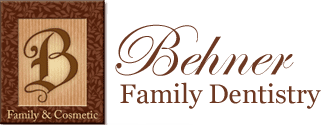
Tooth sensitivity is a common dental issue that affects millions worldwide. Characterized by a sharp, temporary pain in response to hot, cold, sweet, or acidic food and beverages, it can range from mild discomfort to a severe, throbbing ache. But what causes tooth sensitivity, and more importantly, how can it be treated and prevented? This blog post aims to shed some light on these questions.
Understanding Sensitive Teeth
Sensitive teeth, medically known as dentin hypersensitivity, occur when the protective layers of teeth are worn down, exposing the underlying layer called dentin. This layer houses tiny tubes that lead to the tooth’s nerves. When hot, cold, or sweet substances reach these nerves, they trigger a pain response. Now that we understand what tooth sensitivity is, let’s dive into the primary reasons for this common yet distressing issue.
Causes of Sensitive Teeth
Dental issues such as cavities, fractured teeth, worn-out fillings, or gum diseases can expose the dentin and cause sensitivity. Additionally, brushing too hard, using a hard-bristled toothbrush, or consuming acidic food and beverages can also wear down the tooth enamel, leading to sensitivity. Understanding these causes helps us devise effective treatment plans.
Treatment Options for Sensitive Teeth
Several treatments can help manage and alleviate tooth sensitivity. Over-the-counter desensitizing toothpaste can block the nerves in the teeth from perceiving pain. Depending on the severity, your dentist might recommend fluoride gel, a bonding agent, or a dental crown. A root canal may be suggested for extreme cases. Remember, it’s essential to discuss these options with a dental professional before deciding on a treatment course.
Professional Dental Care for Sensitive Teeth
While at-home treatments are helpful, professional dental care often offers more long-lasting solutions. In-office treatments like fluoride varnish applications, dental sealants, bonding, or surgical gum graft can effectively treat tooth sensitivity. These treatments protect the exposed dentin, thereby reducing sensitivity. A regular dental check-up will also help identify any potential causes of sensitivity early, enabling timely intervention.

Dental Care Tips for Sensitive Teeth
Maintaining a proper dental hygiene routine is crucial. Use a soft-bristled toothbrush and avoid aggressive brushing. Incorporate a desensitizing toothpaste into your routine. If you grind your teeth at night, consider a mouth guard to protect your teeth from further damage. Remember, dental care for sensitive teeth is about more than just treating the symptoms; it’s about addressing the underlying causes.
Foods to Avoid If You Have Sensitive Teeth
Certain foods and drinks contribute to enamel erosion, causing sensitivity. Acidic foods and beverages like citrus fruits, tomatoes, pickles, and soda can wear down the enamel. Hot or cold foods and drinks can also cause pain if you have sensitive teeth. Try to minimize consumption of these and switch to a diet beneficial for dental health.
Preventing Tooth Sensitivity
Prevention is better than cure, and this is especially true for tooth sensitivity. Apart from maintaining a good oral hygiene routine, try using fluoride mouthwash and toothpaste, which can strengthen enamel and reduce sensitivity. Regular dental check-ups and cleanings are essential for preventing tooth sensitivity. Additionally, a diet rich in calcium and low in acidity can help preserve your tooth enamel.
Tooth sensitivity can be a painful and inconvenient experience, but with the right knowledge and dental care, it’s entirely manageable and preventable. If you experience tooth sensitivity, don’t ignore it. This could be a sign of underlying dental issues that need attention.
You don’t have to live with the pain of sensitive teeth. Whether you’re currently experiencing tooth sensitivity or looking to prevent it, we’re ready to help. Contact Behner Dental today to schedule an appointment and start your journey toward a healthier, pain-free smile. Let us help you eat, drink, and laugh without fear again. Book your appointment today!





